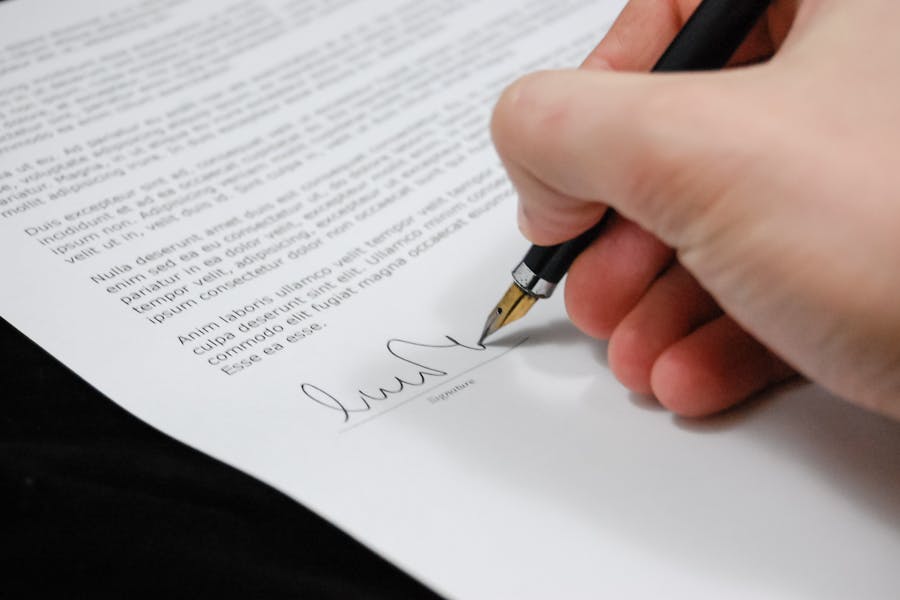
Applying to a law firm is unlike applying to most other professional jobs. Law firms are built on reputation, precision, and trust. A single detail missed in a contract or case filing can have enormous consequences, which is why firms want candidates who are meticulous, persuasive, and professional. Your résumé is a list of what you have accomplished, but your cover letter is your chance to demonstrate who you are as a professional, how you think, and why you are motivated to join that particular firm.
For law students, recent graduates, and even experienced attorneys seeking new opportunities, the cover letter remains an essential part of the hiring process. Even in 2025, where digital applications and AI résumé screening are becoming common, recruiters and partners at law firms continue to read cover letters to gauge motivation and writing ability.
This article will walk you through the step-by-step process of writing a cover letter for a law firm, explain what firms look for, provide detailed examples, and highlight common mistakes to avoid.
Why Law Firm Cover Letters Are Different
Most businesses value cover letters, but in the legal profession they carry special weight. This is because lawyers spend much of their careers writing—drafting motions, constructing persuasive arguments, and analyzing complex legal language. A cover letter is effectively your first writing sample.
A well-crafted legal cover letter shows:
- That you can write with clarity, brevity, and professionalism.
- That you understand the specific firm’s practice areas, culture, and values.
- That you are motivated to pursue a career in law, not just seeking any job.
For example, just as understanding your legal rights in situations like Can You Sue Someone for Running You Over requires clear knowledge of personal injury law, a cover letter demonstrates your grasp of legal professionalism before you ever enter a courtroom. It is not just a formality—it is evidence of your ability to communicate as a lawyer.
Step-by-Step Guide to Writing a Law Firm Cover Letter
Step 1: The Header and Contact Information
Begin your cover letter with a professional header. Your name and contact information should appear at the top, formatted consistently with your résumé. Directly beneath this, include the date of application, followed by the name, title, and address of the hiring partner or recruiting manager.
Using a professional format shows attention to detail. Law firms expect clean, traditional formatting—avoid experimental fonts, graphics, or colors. A law firm cover letter should reflect the same seriousness you would apply to a client letter or court filing.
Step 2: The Greeting or Salutation
Address the letter to a specific person whenever possible. If the firm lists a recruiting coordinator or hiring partner, use their full name and title. For example:
- “Dear Ms. Johnson,”
- “Dear Hiring Committee,”
Avoid outdated phrases like “To Whom It May Concern.” Demonstrating that you know who will be reading your letter shows research and professionalism.
Step 3: The Opening Paragraph
Your introduction must be concise but powerful. State the position you are applying for and how you learned of the opportunity. Then, include one or two sentences explaining why this firm interests you.
Example:
“I am writing to apply for the Summer Associate position at Hamilton & Price LLP. As a second-year student at Columbia Law School with a strong interest in commercial litigation, I am particularly drawn to Hamilton & Price’s reputation for handling complex, high-profile disputes.”
This approach tells the reader what you want, who you are, and why you are writing—all in a few clear sentences.
Step 4: The Body Paragraphs
The body of your cover letter should consist of two to three focused paragraphs.
Paragraph One: Your Qualifications
Highlight the most relevant experiences from your education, internships, or legal work. For a student, this might mean referencing coursework, law review, or moot court competitions. For an experienced lawyer, this could mean cases you have handled or client work that aligns with the firm’s practice.
Example:
“During my internship at the U.S. Attorney’s Office, I drafted motions and conducted legal research that was cited in several briefs. This experience developed my ability to synthesize complex information and strengthened my skills in persuasive legal writing.”
Paragraph Two: Why This Firm
Law firms want to know why you are applying specifically to them. Generic letters that could be sent anywhere are quickly discarded. Research the firm’s practice areas, landmark cases, or pro bono work and connect them to your interests.
Example:
“I am particularly interested in your firm’s work in intellectual property litigation. Your recent representation of a leading technology company in a patent dispute demonstrates the kind of cutting-edge legal work I aspire to contribute to.”
Optional Paragraph Three: Personal Fit
If space allows, add a brief third paragraph explaining your personal qualities—teamwork, client service, or long-term goals—that make you a strong cultural fit.
If you want to ensure your cover letter is visually appealing and professional, using a Font Generator to experiment with different text styles can make your document stand out.
Step 5: The Closing Paragraph
End with a polite but confident conclusion. Express your interest in discussing your application further, and thank the reader for their time.
Example:
“I would welcome the opportunity to discuss how my background in litigation research and advocacy skills can contribute to your team. Thank you for your consideration, and I look forward to the possibility of an interview.”
Use a professional closing such as “Sincerely” or “Respectfully,” followed by your full name.
Tailoring Your Cover Letter for Different Situations
For Law Students and Recent Graduates
Emphasize academic achievements, internships, research, and any extracurriculars like moot court, debate, or law review. Since you may lack full-time legal experience, focus on transferable skills: research, analysis, writing, and advocacy.
For Entry-Level Associates
Highlight clerkships, internships, or part-time legal work completed during law school. Demonstrate readiness to transition into billable work and client service.
For Experienced Attorneys
Showcase practice-specific expertise, client successes, and leadership in past roles. Firms want to know how you can bring value immediately, so tailor your examples to align with the firm’s practice areas.
Tips for Making Your Law Firm Cover Letter Stand Out
- Research thoroughly. Mention recent cases, firm awards, or community work.
- Be specific. Instead of saying “I admire your firm’s reputation,” point to a particular case or practice area.
- Keep it concise. One page is the professional standard.
- Write with clarity. Avoid overcomplicated sentences or excessive legal jargon
- Proofread carefully. A typo in a legal cover letter is as damaging as a typo in a contract.
Additionally, if you want to add a creative touch to your cover letter or accompanying documents, consider using a Freaky Font Generator to experiment with unique text styles.
Common Mistakes to Avoid
- Writing a generic letter that could apply to any firm.
- Rehashing your résumé instead of adding context.
- Using overly formal or outdated language that sounds stiff.
- Making the letter too long—three to four short paragraphs are ideal.
- Failing to connect your goals with the firm’s actual work.
Checklist Before Sending
- Header matches your résumé formatting.
- Addressed to the correct person or committee.
- Specific references to the firm’s practice areas or values.
- No spelling or grammar errors.
- Professional closing.
Do’s and Don’ts of Legal Cover Letters
Do:
- Personalize each cover letter.
- Highlight your strongest writing, research, or litigation skills.
- Mention connections (alumni, referrals, networking).
Don’t:
- Copy-paste from templates without tailoring.
- Overload the letter with GPA, rank, or technical details.
- Forget to show enthusiasm for the role.
Conclusion
Writing a cover letter for a law firm requires more than listing your qualifications. It demands precision, research, and persuasion—the same qualities required in legal practice. By structuring your letter properly, tailoring it to each firm, and highlighting both your achievements and your motivation, you position yourself as a strong candidate who understands the culture of the legal profession.
Whether you are a student applying for an internship, a recent graduate seeking your first associate role, or an experienced attorney making a career move, your cover letter is your first chance to advocate for yourself. Approach it with the same diligence you would apply to a client’s case, and you will stand out in the competitive world of law firm hiring.
FAQ’s
Do law firms actually read cover letters?
Yes. Even when résumés are skimmed quickly, most recruiters and hiring partners read cover letters to evaluate motivation and writing ability.
How long should a cover letter be?
No more than one page, with three to four paragraphs.
Should I mention my GPA or law review?
Yes, but briefly. Major achievements should be highlighted, but your résumé carries the full details.
Can one strong cover letter be used for multiple firms?
No. Each firm expects a tailored letter. Recruiters can instantly recognize generic content.
